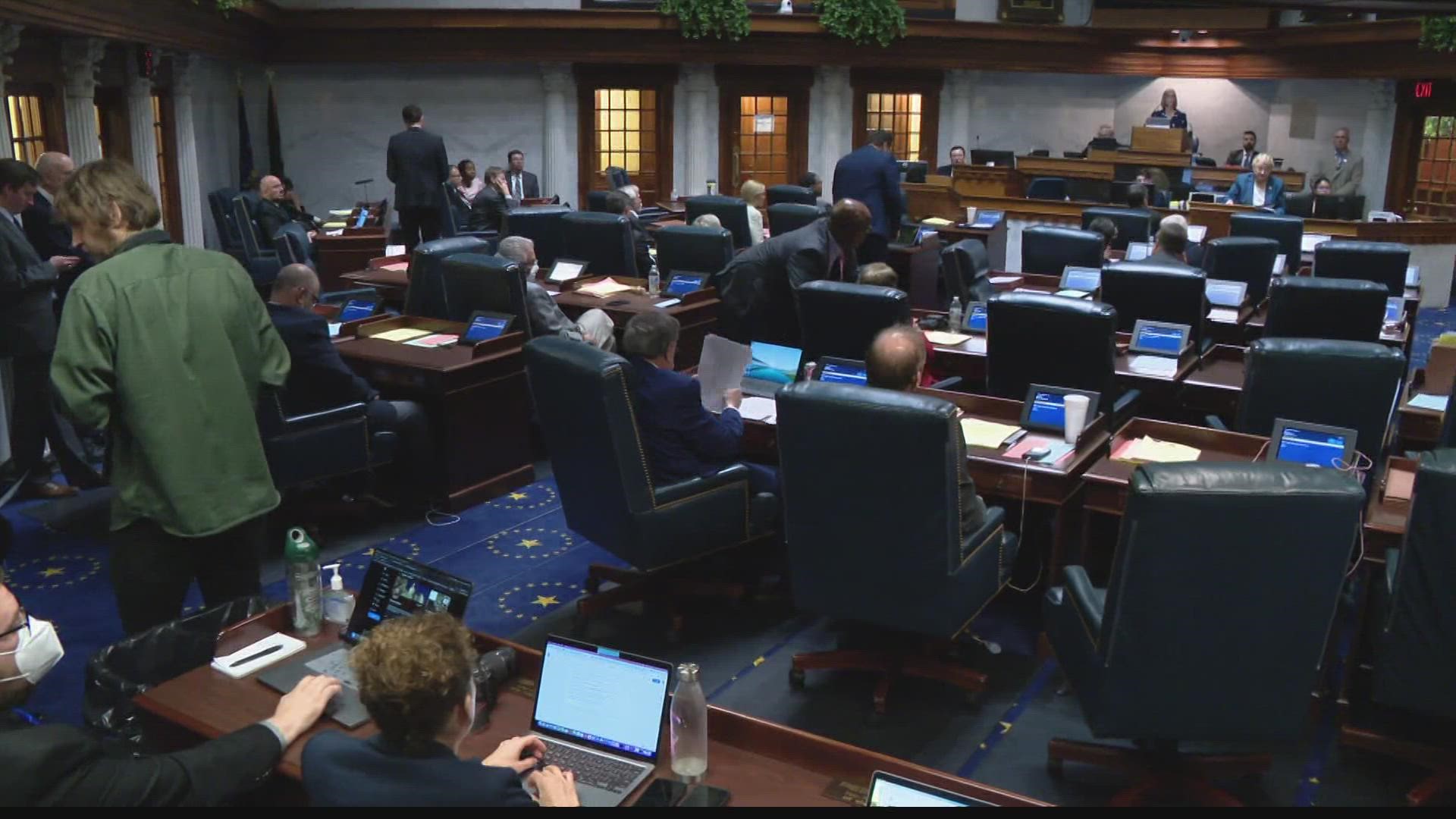INDIANAPOLIS — Indiana on Friday became the first state in the nation to approve abortion restrictions since the U.S. Supreme Court overturned Roe v. Wade, as Governor Eric Holcomb quickly signed legislation creating a near-total ban on the procedure shortly after lawmakers approved it.
The ban, which takes effect Sept. 15, includes some exceptions. Abortions would be permitted:
- In cases of rape and incest before 10-weeks post-fertilization
- To protect the life and physical health of the mother
- If a fetus is diagnosed with a lethal anomaly
Those exceptions have their own restrictions.
For example, the fatal fetal anomaly provision allows abortions for those cases to occur before 20 weeks post-fertilization.
"This is especially harmful because the Level 2 anatomical ultrasound, which most often diagnoses these fetal anomalies, takes place right around 20 weeks," said Dr. Jody Lyneé Madeira, a professor at the IU School of Law. "That means that the ultrasound may take place concurrent with or after the window in which the lethal fetal anomaly exception ends, making this exception largely meaningless."
The law now specifically exempts in vitro fertilization so as not to interfere with those treatment processes.
Amendment 10 states that an abortion exception applies when a physician’s reasonable medical judgment dictates that performing the abortion is necessary under the exceptions outlined in the bill. The facts and reasoning the doctor used in their determination to provide abortion care would need to be in writing.
"This amendment replaces the initial provision requiring that a pregnant person face a substantial permanent impairment," Madeira said. "Since 'serious health risk' is defined as a 'serious risk of substantial and irreversible physical impairment of a major bodily function,' this likely amounts to the same standard, but it is at least consistent with other Indiana code provisions."
The final version of the abortion ban was also amended to impose a “preponderance of the evidence” standard for revoking a physician’s license for performing an unlawful abortion. Madeira said that a "preponderance of the evidence” is the lowest burden of proof in a civil action.
That level of burden of proof is especially significant considering the bill establishes a prosecutorial oversight task force which will include four members of the Indiana House and four members of the State Senate (one member of each is appointed by the minority leader). Other members of the task force include the executive director of the prosecuting attorneys council of Indiana and the executive director of the public defender council of Indiana and the President of the Indiana Judges’ Association.
"This task force will study the circumstances in which a county prosecutor makes blanket refusal to enforce a specific statute or constitutional provision and consider appropriate methods of enforcing the statute or constitutional provision," Madeira said. "These methods may include granting the AG concurrent jurisdiction, granting another prosecuting attorney concurrent jurisdiction, appointing a special prosecuting attorney under certain circumstances or any other method."
The task force must make recommendations before Dec. 1, 2022.
"This change is especially important because it establishes that there is intent to give some law enforcement official concurrent jurisdiction if county prosecutors make a blanket refusal to enforce any provision of the Indiana criminal code, which is far more expansive than abortion," Madeira said. "A measure to give the AG concurrent jurisdiction failed in Spring 2022 during the legislative session and so this is an end run around the normal requirements for legislative passage of this bill."
The bill delicenses abortion clinics, such as Planned Parenthood. All abortions must now take place in hospitals or ambulatory surgical centers.
RELATED: Gov. Holcomb signs abortion ban into law, takes effect Sept. 15; $200 tax refund bill also signed

